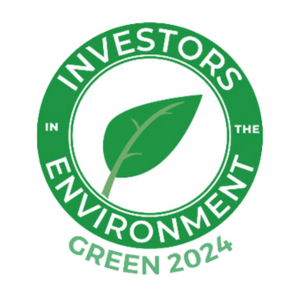
Diary of a Veterinary Student: On placement at an exotics specialist hospital
Thanks to the AVS EMS Grant sponsored by VDS training, I was able to partake in my most rewarding clinical work experience to date. Due to financial constraints, much of the work experience I have completed has been limited to veterinary practices within daily commuting range. Every experience was worthwhile but because I live in central London most of the practices were dog and cat focused, yet my interests are in a wider variety of species. With the grant I felt more confident that I could go to a specialist exotics veterinary hospital for two weeks where I needed accommodation to support my ability to get to work. This particular hospital had been on my radar for several years as they have an exotic specialist diploma holder as a veterinarian, and multiple vets with combined decades of zoo and wildlife experience. The hospital regularly does CTs, surgeries, and clinical investigations for a multitude of safari parks, zoos, and private collections. Seeing as this is the type of work I would like to do, it was a privilege to join them for EMS. All the vets and nurses at the hospital took care and pride in teaching students which added to the comfort level of working there, plus it really boosted my knowledge and clinical skills. With so many new experiences there I’ll try to highlight a few favourites. Reptiles have always fascinated me and all throughout vet school I have been trying to develop my skills with them. Such opportunities are difficult to find, but every day at this hospital there was at least one reptile patient. One evening a Blue Tegu came in because the owners suspected mouth rot. This lizard was 7kg and had a bit of fight in him but at the same time would find comfort in his owner's arms the way many mammals do. Practising a physical exam on him took a bit of ingenuity to look in his mouth, we blood sampled from his tail vein and discussed husbandry. It turned out to just be turnover of some teeth. In addition to the Blue Tegu, I got to work with other lizards such as chameleons, geckos and bearded dragons. As a great thrill on my last day, I scrubbed into a double mass removal on a python, both masses came out smoothly and our patient survived. All through vet school I have been keen to work with a snake, so this was very exciting for me. Because the hospital has so many exotic patients, they also do a lot of post-mortems to help inform different collections of what they should be aware of. Luckily for me this was an excellent chance to learn new anatomy and pathology. Unfortunately, many animals were brought in for post-mortem examination while I was there but at least their deaths provided valuable learning opportunities that would improve the lives of other animals. I conducted a variety of necropsies including a Black Stork, Violet Turaco, Eagle Owl, Degu and Ankole Cow. One of the most thrilling days of my time as a vet student occurred when we went to a nearby safari park to castrate four common eland from an expanding herd. The whole process was fascinating. The head vet darting the eland prepared her darts with etorphine and xylazine for the animals over 400kg and then a ketamine and medetomidine combo for the smaller bucks. She drove with a keeper in search of the correct animal and once darted, six more land rovers would follow our patient so that when he went down they could encircle him to protect the sedated animal from other animals in the park and to protect us as we worked. For the largest bucks we could use emasculators but for the smaller ones we did open castrations just like you might do on a calf. Etorphine was quite intense to work with as we had to stand by with naloxone in case of any accidents. All went so smoothly with sedation, procedure, and recovery, that we had time to check on a multitude of other patients at the park before leaving. At the end of the two-week placement, I had attained a plethora of new skills and expanded my knowledge base dramatically. I can’t thank the AVS and VDS Training enough for contributing to my learning, but I hope they can sense how appreciative I am.AVS EMS Grants
For more info, see AVS UK & Ireland
About VDS Training
VDS Training are passionate about developing all members of the veterinary team, to help you overcome the personal and professional challenges you face on a daily basis, and to build practical skills and techniques to make a real difference to you and your life.

